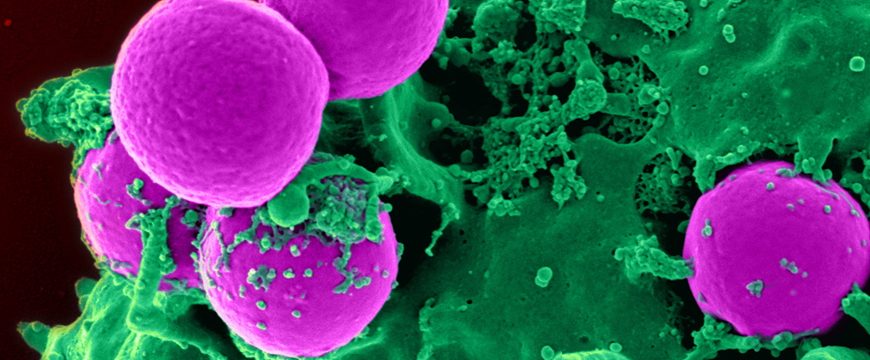
Meticillin Resistant Staphylococcus Aureus (MRSA) is a type of bacterium (germ) that does not respond to commonly used antibiotics. This means infections with MRSA can be harder to treat than other bacterial infections.
MRSA lives harmlessly on the skin of around 1 in 30 people, usually in the nose, armpits, groin, or buttocks. This is known as “colonisation” or “carrying” MRSA.
People with broken skin, wounds, or indwelling devices, are at higher risk of developing an infection associated with MRSA.
MRSA can be spread through contact with a colonised, infected person, through contaminated objects and the environment.
MRSA Decolonisation therapy/treatment
- Octenisan patient leaflet
- Bactroban 2% Nasal Ointment
- Naseptin
- Chlorhexidine 4% Hibiscrub | Mölnlycke
- MRSA decolonisation
- MRSA policy
For further information:
MRSA in primary care | Health topics A to Z | CKS | NICE
MRSA | Treatment summaries | BNF | NICE
Pan Mersey:
The legacy Pan Mersey website has closed. Everything can now be found either in the legacy Pan Mersey Formulary, the new Cheshire and Merseyside Formulary or the ICB website.